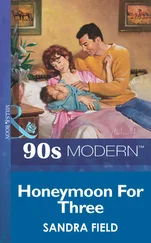In the fall of her senior year, around the same time Dean met Laura, Stephanie wanted to know more about her father’s death. Nicole obliged her, going to the attic and bringing down a box of Sam’s mementos that Dean had never seen before. It was full of papers, mostly newspaper clippings documenting his athletic career, but there were also letters and medical records. Stephanie stayed up all night, reading every word. When Dean and Nicole came downstairs the next morning, they found her asleep among the papers. Dean couldn’t resist stroking her cheek, the way he used to do when she was a toddler. Her makeup was faded, her face soft and calm. She seemed at peace.
But for weeks afterward, Stephanie hounded Nic, asking the questions she couldn’t have formulated at the time of Sam’s death. She wanted to know why Nicole hadn’t taken her father to an oncologist right away. And, why, after getting surgery, hadn’t they gone to Johns Hopkins or D.C. or wherever it was that people went to get the best treatment? Why, in short, had Nicole let her father die? And what about her grandparents, the Shanks? Why weren’t they a bigger part of her life? Was Nicole trying to erase her father? Nicole promised that she had never tried to do any such thing; that, in fact, she had often asked the Shanks to visit. But the Shanks had moved shortly after Sam’s death. They’d used the excuse of their business; they were expanding beyond Shank’s Produce, they had invested in a gourmet grocery franchise, the kind of store that was popular in well-to-do suburban areas but not in small towns. Nicole had felt abandoned. And then, when she’d announced her engagement to Dean, they’d told her, in no uncertain terms, that they thought it was too soon. That hurt, it hurt a lot. Nicole stopped making an effort.
Sam’s illness had taken everybody by surprise. It was hard to convey to Stephanie just how young her father had been. To her, twenty-seven sounded like someone well into adulthood. But Sam hadn’t even settled into a career, other than managing his father’s stores. And the symptoms of this particular cancer, fatigue and muscle soreness, were so common for athletes that he had overlooked them for months. And then it was too late. The disease had spread too far.
It was impossible to say whether or not these answers helped. Sam’s box went back up to the attic, and Stephanie’s interrogation of her mother ended. Her anger seemed to dissipate, and she began to concentrate on her college applications. The only change was that she got in touch with the Shanks and began to visit them on her own. They never came to Willowboro, despite Nicole’s renewed invitations. Sometimes Dean worried that he was the reason for their absence, that they just didn’t like him, but mostly he was grateful for their influence on Stephanie. She opened up to them about her plans for the future — she wanted to be a doctor, maybe — and they encouraged her to apply to schools that her teachers wouldn’t have thought to mention.
Nicole wasn’t as grateful. Stephanie’s rummaging had sparked something deeper than passing melancholy in his wife. She became restless, staying up late to pore over old photos of Sam from high school and college. In the mornings she would sleep in, and Dean wouldn’t see her until dinnertime. She started taking weekend shifts at the club even though she was management and didn’t have to. She said it was to make extra money for Stephanie’s college tuition — money they wouldn’t need, since the Shanks had volunteered to pay whatever Stephanie’s financial aid package didn’t cover. Dean knew Nicole was avoiding him and the kids. He tried to be patient. When she got depressed, sometimes it helped if she stayed busy. Then he turned forty and it struck him as unfair that Sam got to stay young and perfect in her mind, the athlete extraordinaire, while he aged like an ordinary man.
Talking to Laura made him feel younger. She was dating, caught up in an on-again, off-again relationship with a fourth-grade teacher, Tim, whom she’d met at a football game, “of all places” (to Laura, the fervor over football was bizarre) and who she liked quite a bit but was nervous about getting serious with, because she had more education than he did and her mother had told her never to marry a man with less education — an old-fashioned dictum, Laura said, but one she couldn’t get out of her head. She had a master’s degree in psychology, in addition to her B.A. in English. Her ultimate goal was to be a school therapist, but she thought it was important to try teaching as well. Dean would ask her for advice about Stephanie — to keep her psychology skills fresh, he joked. But he was genuinely relieved when she said she thought that Stephanie’s curiosity about her biological father was a good thing, maybe even the beginning of the end of some of the more perplexing aspects of her rebellion.
One day in the cafeteria Laura and Stephanie finally met. Dean and Stephanie usually took separate cars to school and rarely crossed paths during the day, but one morning, Stephanie overslept and stopped by the cafeteria to get the breakfast she had missed at home. When she saw Dean there, standing with Laura in their usual spot by the trophy case, she seemed amused.
“Since when are you on breakfast duty?” she asked.
“Since they started serving decent coffee,” he said. “Do you know Ms. Lanning?”
Stephanie shook her head, and Dean found himself introducing Laura in an elaborate way, explaining that she was a long-term sub for Mrs. Abbott, who was on maternity leave. Stephanie excused herself after a few minutes, apparently bored, but Dean thought he caught her admiring Laura’s pretty, animated face, or at least noticing it. After she left, Laura expressed surprise at Stephanie’s cordial manner, as if she’d expected her to be sullen. That was when Dean began to worry about all he’d revealed to her about his family. Had he betrayed them? He wasn’t sure, but after that day, he was cautious, only visiting Laura every few days. Their exchanges became awkward, and Dean couldn’t say why, exactly. He weaned himself off her until one day he found an invitation to her farewell party in his mailbox, a xeroxed notice on pale orange paper with GOOD-BYE LAURA in a big cursive font and a half-dozen pieces of clip art. Dean gazed at the invitation for a long time, wondering if the notice was some kind of message. And then he looked up and saw that the orange notice was in everyone’s mailbox, and he realized that Laura had forgotten about him, just as he should forget about her. He was married. He had two thriving sons and a daughter who was graduating from high school with every honor in the book. He was happy, even if Nicole wasn’t.
On the morning of Laura’s farewell party he dressed carefully, just in case he decided to go. He shaved slowly, flossed twice, and used mouthwash after brushing his teeth. He trimmed the hairs in his nose. On his lunch break, he filled his car with gas and then, on the way back to school, stopped at the drugstore to buy a farewell card.
Because it was May, there was a display of Mother’s Day cards, so he picked out something for Nicole first. The cream-colored cards, with their watercolor flowers and the words wife and mother in a nearly unreadable calligraphy, looked to Dean like sympathy notes, as if being a mother was some sad, unspeakable thing. The humorous cards weren’t any better. The gist of every joke was the same: Husbands and children are thoughtless, ha ha! Dean opened and shut a dozen before giving up and returning to the flowery cards. He picked one printed on heavy blue paper, with the words To My Wife embossed in gold. Then he grabbed a Snoopy card for Laura and took it to the register. At the last minute, he also bought a small bag of Hershey’s Kisses.
Читать дальше












